Pakistani dramas have captivated a global audience—largely due to platforms like YouTube. Audiences now drive up view counts to over 20 million within a day, proving just how popular these serials have become. However, despite the overwhelming love, there’s still room for progress. To evolve further, the industry must move beyond repetitive saas-bahu conflicts and explore bolder, more authentic narratives that mirror real societal issues.
Thankfully, a shift has already begun.
Recently, drama creators have started experimenting with fresher storylines. They’ve moved past the tired formula of rich boy-poor girl romances, clichéd mother-in-law feuds, and love being the only life goal. Instead, they’ve introduced stories with substance—and the audience has responded enthusiastically. This positive reception challenges the long-held belief that viewers only crave drawing-room dramas.
Moreover, these innovative stories are not just gaining critical praise—they’re also topping rating charts and pulling in millions of views. The success proves that audiences are ready, even eager, for meaningful content that breaks the mold.
Here are a few standout Pakistani dramas that are rewriting the rules—and still winning hearts.
Qarz e Jaan:
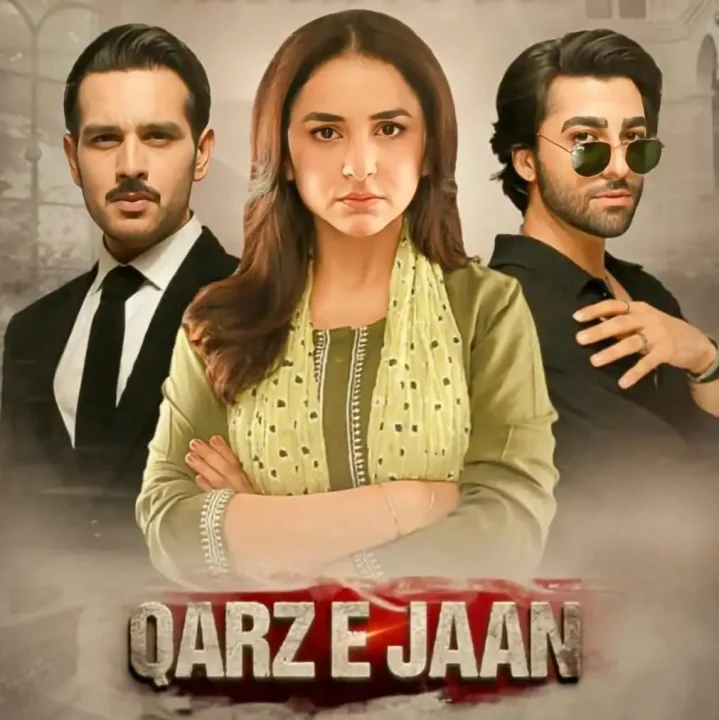
Qarz-e-Jaan recently wrapped up its successful run on television, earning praise for its powerful storytelling and stellar performances. The drama featured a talented ensemble cast, including Yumna Zaidi, Faisal Rehman, Sakina Samo, Usama Khan, and Nameer Khan, whose compelling portrayals elevated the show. Instead of following a conventional love story, the writers chose to spotlight pressing societal issues, addressing drug abuse, elite impunity, and the struggles faced by widows and orphans—topics that are often overlooked in mainstream Pakistani dramas. Additionally, the show emphasized the crucial role of parenting in shaping both morally upright and troubled individuals within society.
Despite steering clear of formulaic romance tropes, Qarz-e-Jaan managed to captivate viewers from start to finish. The audience praised its raw depiction of real-world issues, proving that impactful storytelling can succeed without relying on traditional romantic clichés. By tackling these themes, the drama set a new benchmark for Pakistani television, showing that audiences are ready for bold, meaningful stories rather than repetitive love sagas.
Faraar:
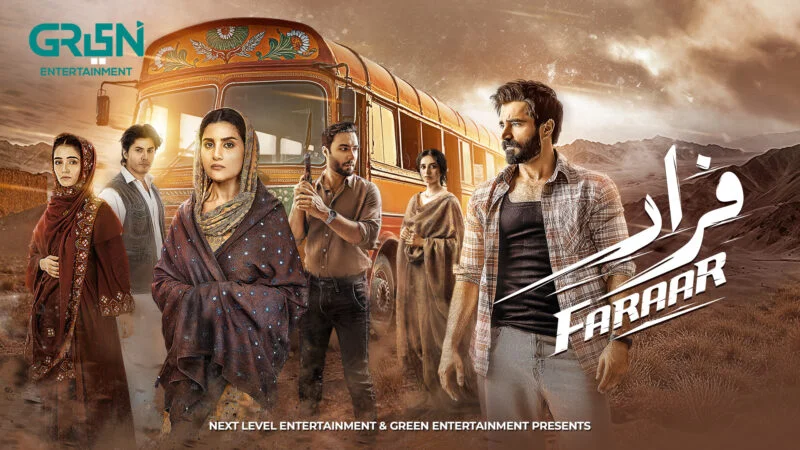
Faraar emerges as an exciting new drama that immediately grabs attention with its remarkable cast and gripping storyline. The series boldly explores the lives of individuals who try to erase their identities for deeply personal reasons. However, life forces them to confront the consequences of their decisions, adding emotional intensity to the plot. As each episode unfolds, the actors deliver powerful performances that bring these layered characters to life, making the drama both engaging and thought-provoking.
The show’s striking cinematography further enhances the emotional weight of each character’s journey. From moody lighting to impactful close-ups, every shot adds depth to the narrative. The drama does not shy away from portraying emotional vulnerability, allowing the audience to relate to the struggles the characters face. This fresh and bold concept has resonated strongly with viewers, earning widespread appreciation among Pakistani drama enthusiasts.
In essence, Faraar stands out with its fearless storytelling and cinematic finesse. By breaking away from conventional tropes and introducing a new perspective, the series contributes to the evolving narrative style of contemporary Pakistani television. Its success highlights the growing demand for more innovative and emotionally engaging content in the industry.
Gentleman:

Gentleman marked Humayun Saeed’s highly anticipated return to television after his iconic role in Mere Paas Tum Ho. The drama immediately caught attention by introducing bold, layered characters, particularly the women who confidently voiced their opinions and challenged societal norms. This shift in portrayal offered a refreshing take, allowing female characters to lead with strength and complexity. Furthermore, the series boldly explored Pakistan’s contemporary political landscape, using fiction to reflect real-world issues and spark critical reflection among viewers.
While the story generated mixed reactions, it undeniably pushed the boundaries of typical Pakistani television. Some viewers praised the show’s bold storytelling, while others disagreed. Regardless, Gentleman took risks by tackling new themes, blending romance, action, and political commentary. The core storyline—a gangster falling in love with a strong-willed journalist—challenged the common trope of a wealthy CEO falling for a naive 18-year-old. This fresh approach resonated with the audience, who appreciated the innovative narrative and empowering female lead.
In doing so, Gentleman redefined the scope of mainstream drama, proving that Pakistani audiences are ready for more diverse and complex stories. The drama’s success highlighted the demand for bold, engaging narratives that blend various genres, making it a landmark in the evolution of television storytelling.
Meem Se Mohabbat:
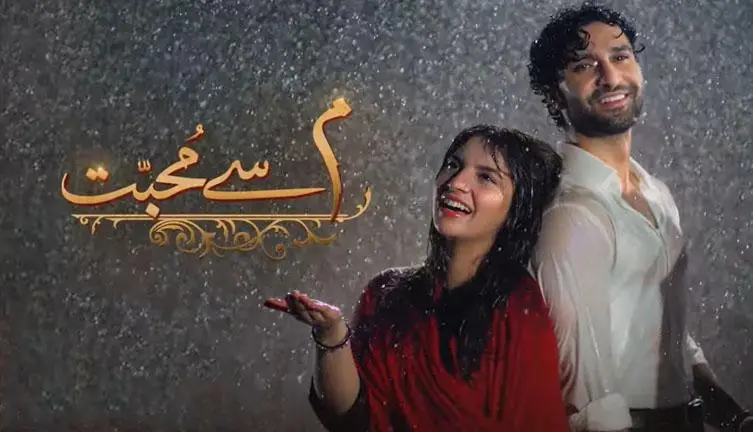
Meem Se Mohabbat initially seems to follow the familiar age-gap romance trope seen in many Pakistani dramas. However, it quickly breaks away from these clichés, offering a refreshing narrative and emotionally grounded characters. Rather than focusing on toxic relationships or unsupportive family dynamics, the drama highlights compassion, growth, and emotional maturity. The parents play a nurturing role, encouraging their children’s ambitions, while the sister’s dedication to her sibling’s happiness adds a heartwarming layer to the story.
The drama also takes bold strides by offering a positive portrayal of the aunt (phupho), who adds wisdom and care rather than creating conflict. In a significant twist, the female protagonist is the first to express her feelings, which challenges traditional romantic norms. Her courage is supported by her grandfather, who patiently explains love and life’s complexities. These deliberate narrative choices transform what could have been a typical love story into an emotionally intelligent and progressive tale. Meem Se Mohabbat breaks away from tired formulas, captivating audiences with its sincerity and innovation.
Guru:
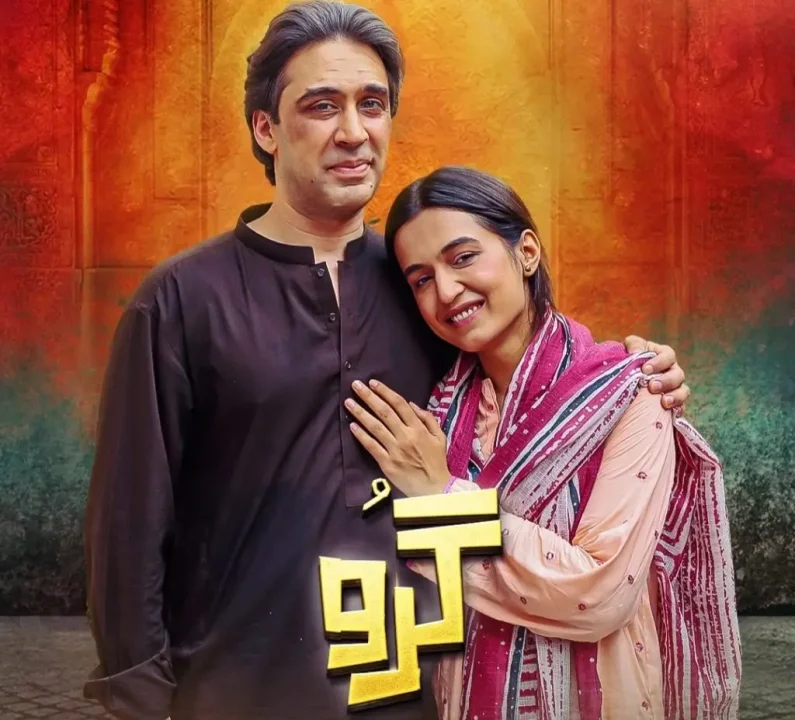
Guru boldly redefined Pakistani television by centering its story on an intersex individual leading a khawajasira community and becoming the parent of a young girl. Stepping far outside his usual roles, Ali Rehman Khan delivered a powerful performance that surprised many, showcasing emotional depth and vulnerability. Despite airing on a lesser-known channel, the drama broke through and grabbed attention with its brave, unconventional narrative.
Moreover, Guru tackled more than gender identity—it challenged societal prejudices, especially the discrimination faced by girl children. Audiences appreciated its emotional storytelling and praised the show for giving voice to a community rarely represented on screen. With its layered themes and fearless approach, Guru stood out as a much-needed departure from the formulaic drama landscape in Pakistan.
Duniyapur:
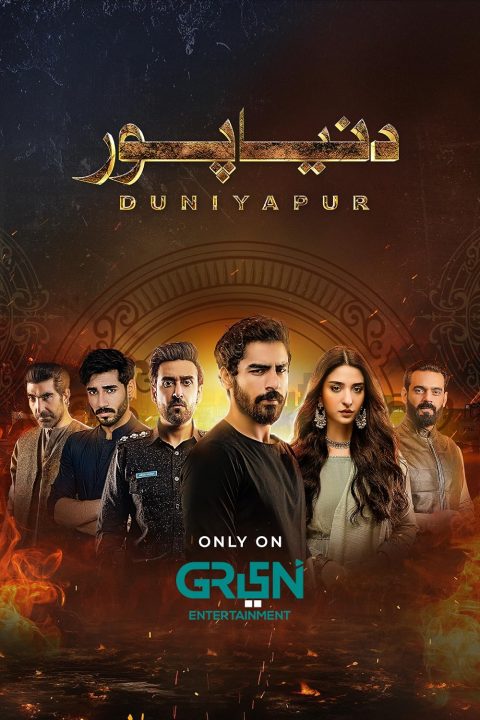
Duniyapur quickly earned the title of “the Mirzapur of Pakistani dramas” as viewers praised its gritty, unapologetic storytelling. The drama fearlessly portrayed violence, featured morally complex characters, and built a world where death arrived swiftly and without warning. By diving into this dark, intense territory, the show carved out a unique niche—something few local productions have attempted. Despite its unsettling tone, Duniyapur resonated with audiences and built a strong, loyal fan base.
Moreover, the buzz around a potential second season continues to grow, with fans speculating about returning characters and new plot twists. Backed by a high production budget, the creators took a bold leap—and it paid off. Ultimately, Duniyapur demonstrated that well-executed, daring narratives can captivate Pakistani audiences and challenge traditional storytelling boundaries successfully.
Aye Ishq e Junoon:
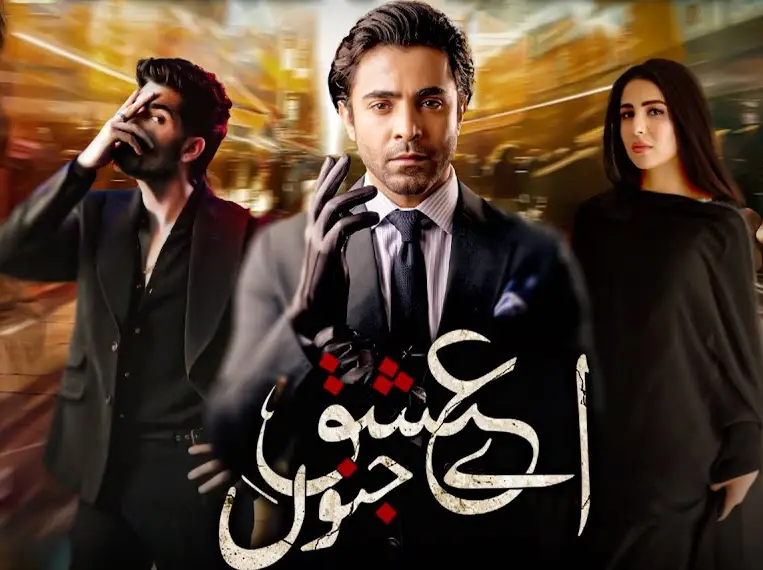
Aye Ishq e Junoon, starring Sheheryar Munawar, Shuja Asad, and Ushna Shah, ventured into rarely explored territory for Pakistani television—a crime thriller. While the genre is often overlooked in local dramas, the series boldly embraced it, and the gamble paid off. The gripping storyline, combined with strong performances, kept the show suspenseful until the end. Although a few moments felt slow, the overall pacing remained engaging, keeping viewers on edge with each twist.
Audiences responded enthusiastically, with the drama racking up impressive YouTube views and ratings. The cast earned widespread praise, with all three leads lauded for their compelling portrayals. Aye Ishq e Junoon was celebrated for bringing something fresh and daring to the screen, proving that Pakistani drama viewers are eager for more innovative storytelling.
Khaie:
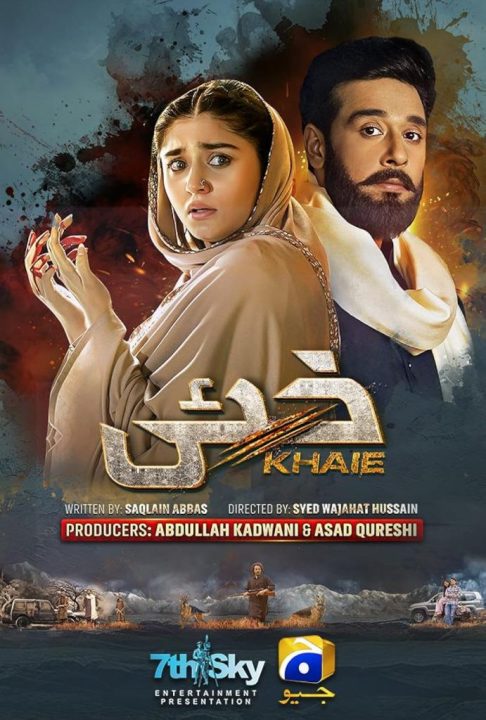
Khaie, which aired on Geo TV, became an unexpected phenomenon, hitting all the right notes. Neither the cast nor the crew anticipated its massive success, but audiences embraced it wholeheartedly.
At the heart of Khaie was a dark, twisted revenge saga set in a world where every character had shades of grey. There were no traditional heroes or villains—just deeply flawed individuals driven by pain, power, and vengeance. This moral ambiguity, combined with gripping storytelling, struck a powerful chord with viewers, making the drama an instant hit.
Parwarish:
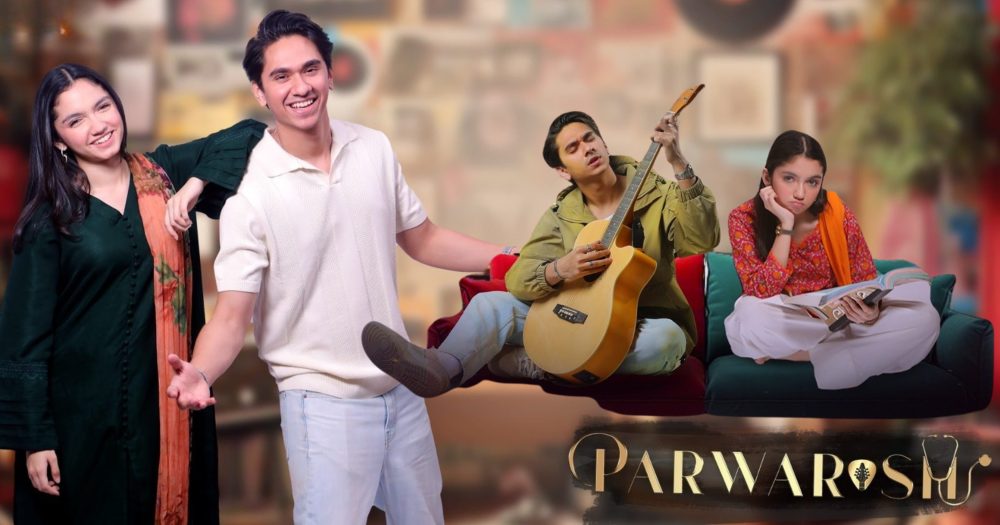
Parwarish is a compelling new Pakistani drama that resonates deeply with audiences. It addresses the challenges faced by Generation Z in a relatable way, particularly appealing to younger viewers. The series explores critical themes, including the generational gap between parents and children, the struggles young people face in communicating their desires and ambitions, and issues like bullying and mental health.
By tackling these relevant topics, Parwarish not only entertains but also fosters meaningful conversations about modern parenting and youth experiences. The show’s realistic portrayal of family dynamics, combined with its focus on understanding and acceptance, has earned widespread acclaim. Additionally, its success in topping the TRP charts further underscores its significant impact on contemporary Pakistani television.
Just What You Need for a Perfect Solution!
From its first episode to the last, the drama kept audiences hooked, sparking ongoing conversations. It became more than just a hit; it became a cultural moment in Pakistani television. This success proves that bold storytelling resonates when done with conviction.
These dramas are not only shattering traditional channel formulas but also boldly rewriting the rules. They represent daring experiments—exactly the kind of storytelling Pakistani drama audiences have been craving. The overwhelming appreciation they’ve received shows that viewers are eager for fresh genres and fearless narratives.
Audiences have grown tired of recycled love triangles and older actors playing college kids. Now, they crave stories with grit, depth, and originality—and these dramas are finally delivering just that.